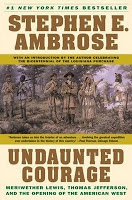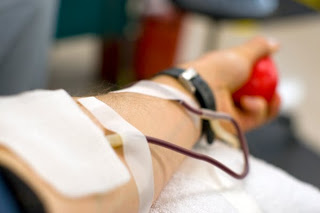The Bloody Ban

According to the CDC, 4.9 million Americans require a transfusion of blood or blood products daily. Is our blood supply safe enough to infuse into them?
That’s the debate raging right now. At issue? Whether gay men can be allowed to donate blood. The FDA has a policy that men who have had sex with another man (MSM), even once, since 1977 are deferred indefinitely from donating blood. On June 11, an advisory committee to the Department of Health and Human Services, composed of health experts from around the country, voted 9-6 to maintain that bans. Is this fair, unfair, discriminatory, accurate?
Mark Skinner, president of the World Federation of Hemophilia, and a lawyer, believes the ban should be upheld. He writes in an article in US News & World Report (posted July 26, 2010), “Recent CDC data indicate that while U.S. HIV infection rates are falling in heterosexuals and intravenous drug users, they are rising among men who have sex with other men and are 44 times that of other men. Additionally, other pathogens that might also be transmitted through high-risk sexual behavior are not fully understood.” Mark stresses that the safety of a recipient of a blood donation comes first. Looking at the scientific data only, the rise in HIV rates and their pattern, the ban should stay for now.
Alternatively, some believe the ban is unfair, needless and discriminatory. Representative Mike Quigley, Democrat from Illinois who sits on the House Committee on Oversight and Government Reform, voices this concern in a counter piece to Mark’s. The ban was put into place during the HIV contamination of the nation’s blood supply in the 1980s. Yet, a man who has had sex with an HIV-positive woman can donate after waiting a year. Fair? Quigley is concerned that there is not enough blood to be donated, and that the gay community represents a willing source of blood donations. Quigley wants a way to separate the high risk gay donors from the low risk, so that at least some in the community can participate.
Not good enough for Mark Skinner, who puts the focus on the recipient’s safety. But he bridges the debate by adding, “While many perceive a disconnect between leading gay rights and end-user patient organizations, these groups have more in common than recent discourse reflects. Both have been disproportionately impacted by the HIV epidemic and for most of the past quarter-century have worked toward shared goals including preventing the virus’s spread. Both share a strong commitment to a safe national blood supply.”
There’s no right or wrong answer at this point, but you can read more about this by Googling “blood donor ban.” If anything, it’s a great exercise in tolerance, science, altruism and politics. I wonder if anyone has interviewed the recipients about how they feel?
Great Book I Just Read
Undaunted Courage by Stphen E. Ambrose
Christopher Columbus may have put America on the map, but Meriweather Lewis put a map to America. One of the great adventure stories of all time, the amount of courage needed by this 30 year old, setting out to discover what lay beyond the Mississippi River, was immense. A close confident of Thomas Jefferson, who had unbridled expansionist plans, he set out in 1803 to find the fabled water passage to the Pacific Ocean. There was none, but Lewis (and Clark!) had an adventure like no other. From Philadelphia to St. Louis through Idaho and eventually Oregon in two years, they charted and mapped the US under the most primitive of circumstances, and discovered new species of plants and wildlife. They met and negotiated with the Indians, the most terrifying of which were the Sioux. A great study in leadership and courage, it has a sad outcome for Lewis in the years following his celebrity status. An amazing American hero. Four stars.


